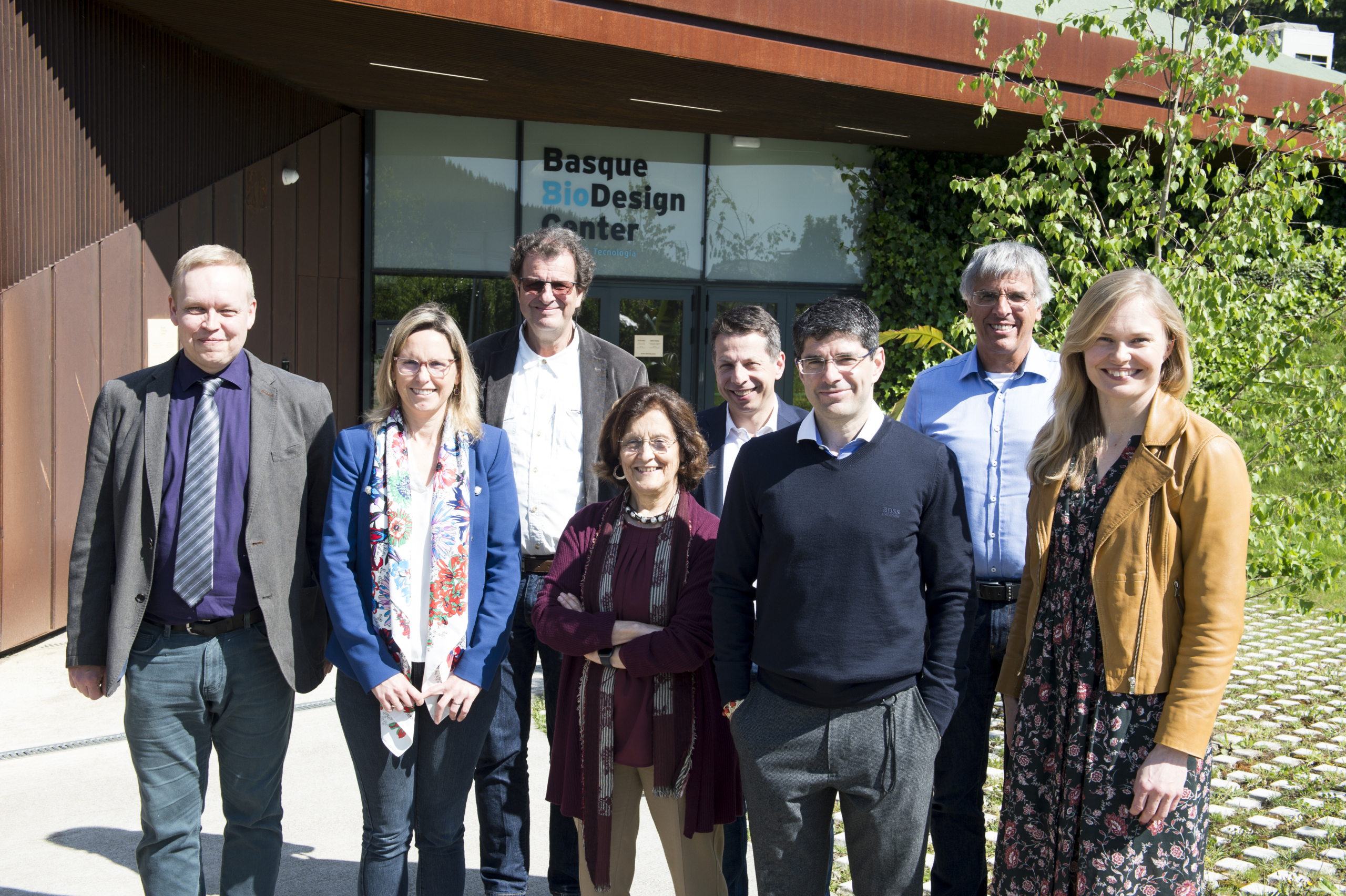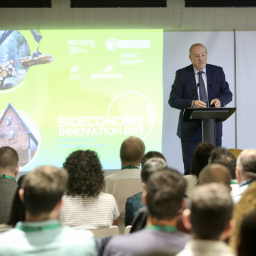NEW
European experts in the field of bioeconomy visit projects in the Basque Country
26 April 2022European experts in the field of bioeconomy visit projects in the Basque Country
- The board of directors of the European Forest Institute (EFI), a European benchmark in forestry research, has chosen the Basque Country as the venue for its annual meeting.
- This visit is in line with the Basque Government’s commitment to the bioeconomy and is part of its Circular Economy and Bioeconomy Plan to optimise clean production.
The bioeconomy is gaining notoriety in the Basque Country and our territory is moving towards the ecological transition thanks to different projects and initiatives related to the bioeconomy and forestry research. In this scenario, the board of directors of the European Forest Institute (EFI), a European benchmark in forestry research, is currently holding its annual meeting in the Basque Country, attracted by all the projects that are making the region emerge as one of the bio-economic focal points of southern Europe.
During their visit, which will last until tomorrow, they will have the opportunity to learn about the progress of some of the most important bioeconomy projects currently being carried out in our territory.
They will be accompanied during their tour of the Basque Country by Leire Barañano, Managing Director of NEIKER and Vice-President of the EFI Board of Directors, Santiago Rementeria, Managing Director of Gaiker and Izaskun Garmendia, from Tecnalia’s Construction and Bio-based Products business area.
The Basque Country, a focus for the bioeconomy in southern Europe
“It is no coincidence that the meeting of the highest body of the EFI, represented by experts linked to the field of the bioeconomy, is being held these days in our territory, specifically in Enkarterri, a region in which a powerful bioeconomy hub is being developed that integrates training, entrepreneurship and business activities”, explains Leire Barañano, CEO of NEIKER and vice-president of the EFI board of directors.
Enkarterri, and in particular, the Basque Design Center of Güeñes (Bizkaia), has been the first stop on the way for the members of the EFI board of directors, a visit that has begun today and in which they have also had the opportunity to see first hand at its production plant in Natxitua (Ea, Bizkaia) the projects of the wood construction company Egoin, whose philosophy lies in sustainable construction, betting on wood as a construction resource, environmental care and the use of local raw material Km0.
Tomorrow, the attendees will visit the Bizkaia Technology Park to learn about the evolution of the Bioregions platform, which promotes trans-regional cooperation for a sustainable and inclusive circular bioeconomy based on forests through different projects, and in which the Basque Country has been actively participating since its creation. Afterwards, they will visit the headquarters of the NEIKER, Gaiker and Tecnalia technology centres, benchmark technology centres in the Basque R&D&I ecosystem in the field of the bioeconomy, to discover the Basque Country’s technological capabilities in forestry research and projects related to the economy.
In this regard, in recent years, the NEIKER technology centre, which specialises in offering technological solutions to the primary sector, has been collaborating with various projects to promote the circular economy in the Basque Country, such as the Latxari project to give a second life to waste that is difficult to manage, such as wool waste from latxa sheep, or the FERTILWASTES project, through which new fertilisers and biostimulants are being developed through the sustainable use of organic waste.
Towards a more sustainable economic and business fabric
The Basque Country has been working for years in the field of the circular economy. In fact, according to data from the Basque Government Department of Economic Development, Sustainability and Environment, since 2000, the Basque economy has grown by 26%, while the consumption of materials has been reduced by 25% and the volume of urban waste in landfill has been reduced by 56%. In this time of ecological transition, the region’s economy is decoupling itself from the consumption of materials and the generation of waste through various measures and projects such as those mentioned above to promote the circular economy.
In this context, last October, the Basque Government approved the Circular Economy and Bioeconomy Plan, an initiative aligned with the European Green Pact, which seeks to boost efficiency in the consumption of raw materials, reduce waste and optimise clean production. Among other challenges, this plan aims to increase material productivity by 30%, reduce the waste generation rate by 10% and position the Basque Country among the leaders of the circular economy in Europe.
This visit is part of the Basque Government’s strategy to promote the bioeconomy.
About the European Forest Institute (EFI)
The European Forest Institute (EFI) is the European reference body for forestry research and stands out for the policy support it provides to institutions on forest-related issues. It was established in 1993 with the mission to improve international forestry research and to provide decision-makers with unbiased forest-related information at the pan-European level.
It is currently an international body with 28 member states and 115 associate members from 37 European countries and regions, including the Basque Country.






